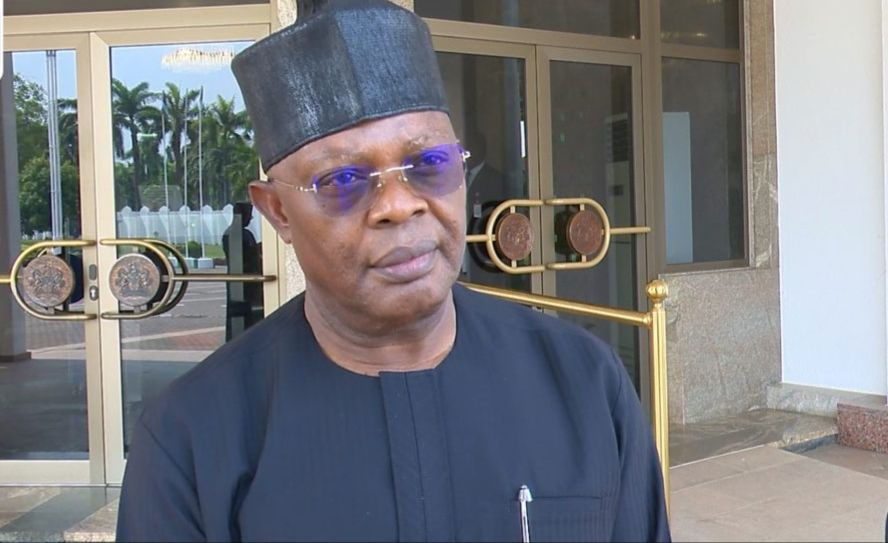WAF Shipping Focus: Week 16
- Agwe Logistics Solutions

- Apr 18, 2025
- 3 min read

The Minister of Marine and Blue Economy, Adegboyega Oyetola, has announced a series of initiatives aimed at strengthening Nigeria’s maritime sector, with a particular focus on sustainability, digital transformation, and private sector engagement. Among the highlights is the implementation of the Turtle Excluder Devices (TEDs) Certification Exercise, designed to align Nigeria with international conservation standards and open access to ecoconscious global markets. Speaking through Dr. Mercy Ilori, Director of Maritime Services at the Ministry, Oyetola made the announcement during his keynote address at the third Maritime Transportation Industry Breakfast organized by the Nigerian Maritime Law Association (NMLA) in Lagos.
For further information please check the link below:

As part of efforts to unlock the vast opportunities within the Blue Economy, the Minister of Marine and Blue Economy, Mr. Adegboyega Oyetola, has instructed the Nigerian Maritime Administration and Safety Agency (NIMASA) to initiate the long-awaited disbursement process for the Cabotage Vessel Financing Fund (CVFF). This directive marks a significant shift from over two decades of administrative stagnation and ushers in a new era of strategic repositioning of Nigeria’s indigenous shipping. The CVFF, established under the Coastal and Inland
Shipping (Cabotage) Act of 2003, was designed to empower Nigerian shipping companies through access to structured financing for vessel acquisition. However, successive administrations failed to operationalise the fund—until now.
For further information please check the link below:

Nigeria’s maritime trade has shown a remarkable deviation from other modes of foreign trade transport, with goods exported via maritime transport exceeding imports by 39.76% in 2024. According to the National Bureau of Statistics (NBS),
the value of goods exported through maritime transport in 2024 reached N78.37 trillion, surpassing the value of goods imported by sea vessels, which stood at N52.37 trillion. This trend is consistent with the previous year’s data, which showed
maritime exports valued at N36.22 trillion, exceeding maritime imports of N32.19 trillion by 11.78%. Nigeria’s overall trade balance in 2024 was N20.8tn, with exports valued at N79.11tn and imports at N58.31tn.
For further information please check the link below:

The Nigerian Maritime Administration and Safety Agency (NIMASA) has called on private individuals and corporate investors to explore emerging opportunities within Nigeria’s Blue Economy, particularly in the maritime sector. This call to
action was made by NIMASA’s Director General, Dr. Dayo Mobereola, during the ongoing 36th Enugu International Trade Fair. Represented by Mr. Umar Mohammed, Deputy Director in the Planning, Research and Data Management Services Department, Dr. Mobereola reaffirmed NIMASA’s commitment to implementing the Federal Government’s Renewed Hope Agenda. He emphasised the importance of inclusive economic growth through greater indigenous participation in both domestic and international shipping activities.
For further information please check the link below:

The Importers Association of Nigeria (IMAN) has called for urgent steps toward industrial diversification and infrastructural development, warning that Nigeria risks becoming merely a dumping ground for Chinese products, if it fails to leverage the Nigeria-China currency swap deal to boost local manufacturing
and exports. Speaking at a breakfast meeting organized by the Maritime Reporters Association of Nigeria (MARAN) in Lagos, Dr. Ibrahim Mahmoud Mubarak, Director of Customs and Extant, Trade Facilitation, IMAN Special Taskforce, emphasised that without significant investment in local industry, the currency swap arrangement may further tilt the trade balance in China’s favour. Themed “Navigating the Nigeria-Peoples Republic of China Currency Swap: Opportunities and Challenges for Import, Export and Maritime Business,”.
For further information please check the link below:

The Administrator of Rivers State, Vice Admiral Ibok-Ete Ibas (retd), has emphasised the need for strict implementation of Public-Private Partnership agreements at Rivers sea ports to maximise benefits and boost economic growth. Ibas spoke when he received members of the House of Representatives Committee on Public Assets, led by its Chairman, Ademorin Kuye, who called on him in Port Harcourt. According to him, in spite of the state’s critical role in maritime, oil and gas operations, and other industrial activities, weak regulatory frameworks, lack of accountability, and conflicting stakeholder interests have hindered business growth.
For further information please check the link below:





Comments